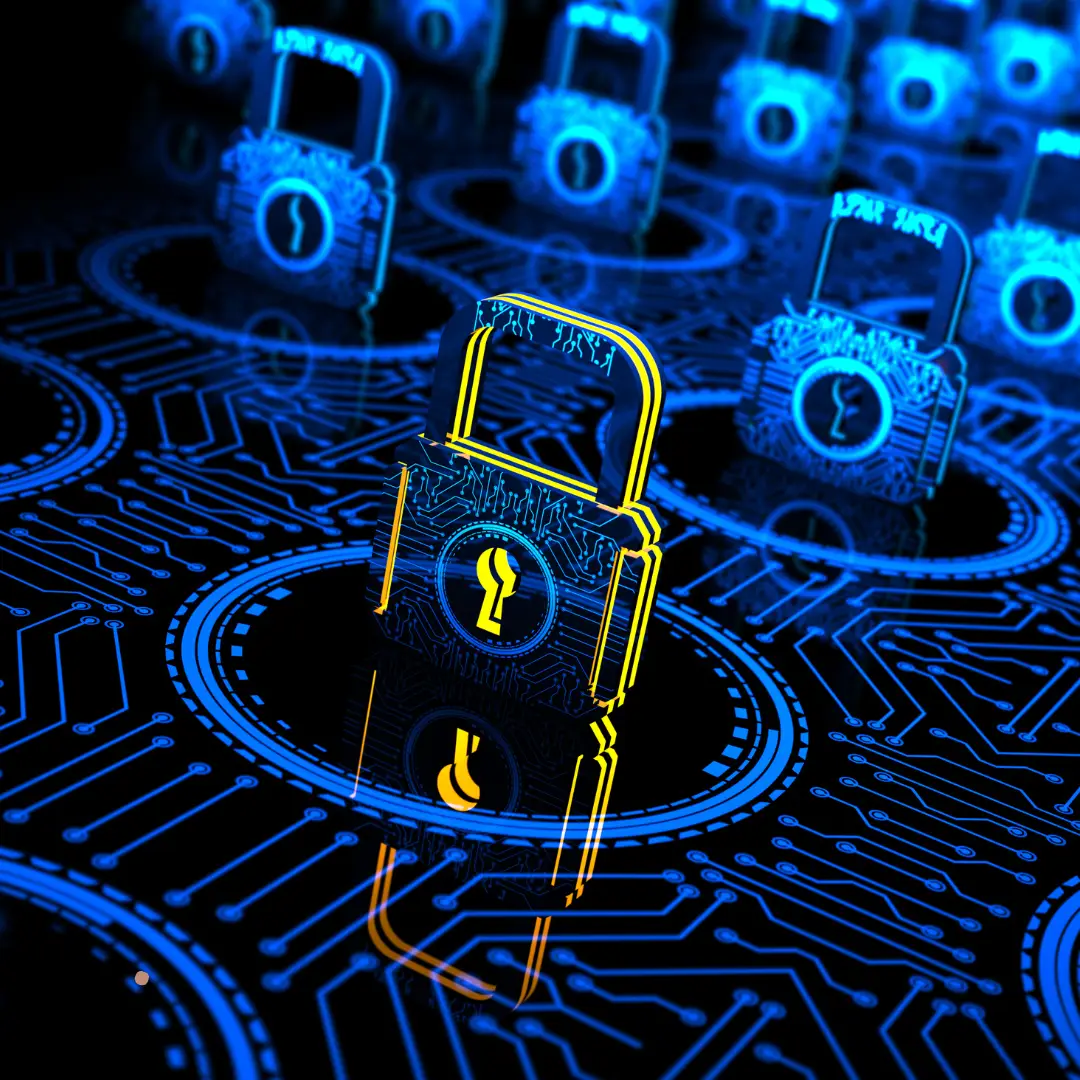With the rise in cyber attacks, the computer security in the company has become a top priority. In Switzerland, companies of all sizes are targeted by threats such as ransomware, phishing and data breaches.
How can you effectively protect your IT infrastructure and prevent data loss? Visit BEST PRACTICES to strengthen your cybersecurity and protect your business against cyberthreats.
1. Employee awareness and training
🔹 Why? 80% of cyber attacks succeed because of human error, such as clicking on a malicious link.
✅ Solutions :
✔️ Organize regular cybersecurity training sessions
✔️ Training employees to detect phishing emails
✔️ Implement security policies (passwords, restricted access)
💡 A well-trained employee is the first line of defense against cyber-attacks.
2. Protecting against cyber attacks
🚨 The most frequent attacks in Switzerland :
✔️ Ransomware: blocking files in exchange for a ransom
✔️ Phishing: fraudulent e-mails to steal information
✔️ DDoS attacks: overloading servers to make them inaccessible
🔒 How can I protect myself?
✔️ Installing a high-performance firewall to block intrusions
✔️ Use a professional antivirus and update it regularly
✔️ Encrypt sensitive data to prevent leaks
💡 Investing in solid IT protection is essential to ensure the long-term future of your business.
3. Secure access and passwords
🔹 Why? 60% of data breaches are caused by weak or reused passwords.
✅ Best practices :
✔️ Require complex, unique passwords
✔️ Set up a multi-factor authentication (MFA)
✔️ Use a password manager secure
💡 Strong passwords and authentication prevent unauthorized access to your systems.
4. Back up data regularly
📌 Why? A cyber-attack or breakdown can result in the total loss of your critical files.
💾 Recommended backup solutions :
✔️ Secure cloud backup accessible anywhere, protected by encryption
✔️ Local backup on a server or external disk
✔️ Automatic backups to avoid forgetting
💡 In the event of an attack, a recent backup means you can restore your data quickly.
5. Update your software and systems
🔹 Why? Cybercriminals often exploit vulnerabilities in obsolete software.
🛠️ Action to be taken :
✔️ Activate automatic updates systems and software
✔️ Install the latest security patches
✔️ Checking tool compatibility with new standards
💡 Up-to-date software is an effective bulwark against computer vulnerabilities.
6. Protect network connections and remote access
📌 Why? With the telecommutingRemote connections make your company even more vulnerable to cyber-attacks.
🔐 Solutions :
✔️ Using a secure VPN for external connections
✔️ Restrict access to sensitive data to authorized employees only
✔️ Secure corporate Wi-Fi with strong passwords and network segmentation
💡 A secure network reduces the risk of intrusion and data theft.
7. Carry out regular safety audits
🔹 Why? An audit helps you identify vulnerabilities and improve your system's protection.
✅ Do it regularly :
✔️ Test the resistance to cyber attacks with simulations
✔️ Check compliance with regulations (RGPD, LPD in Switzerland).
✔️ Calling in a cybersecurity expert for a complete diagnosis
💡 A proactive audit reduces risks and improves overall company security.
Why call on Webiphi for your company's cybersecurity in Switzerland?
At Webiphiwe support Swiss companies in the implementation of solutions for customized IT security.
🚀 Our services :
✅ Audit and diagnosis of your IT security
✅ Installation of firewall, antivirus and backup solutions
✅ Cybersecurity training for your employees
📞 Need to secure your business? Contact Webiphi today!
Conclusion
At a time when cyber-attacks are on the increase, protecting your company's data is essential. indispensable. By applying these best practices - employee training, robust safeguards, regular backups and security audits - you can significantly reduce risk.
🔹 Effective cybersecurity = a more resilient, reliable business!
📌 Would you like to strengthen your company's IT security in Switzerland? Rely on Webiphiyour cybersecurity expert!







